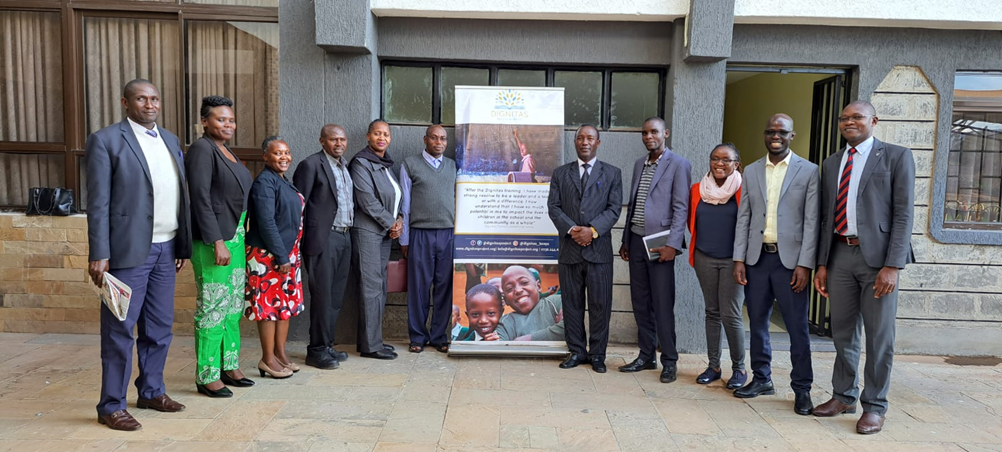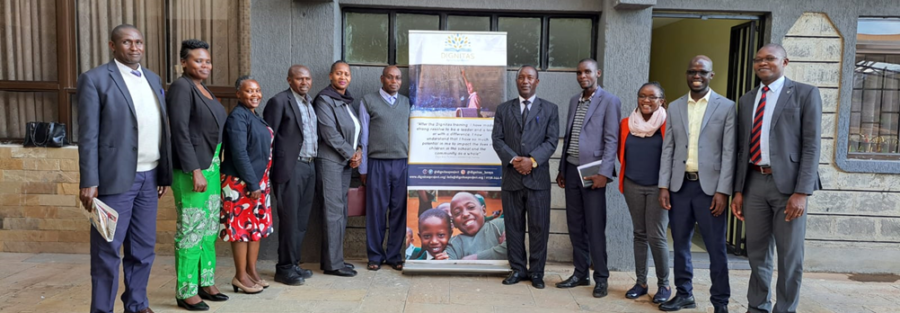
By Simon Mukwambo
Education has undergone a remarkable transformation over the decades. Gone are the days when school inspectors were viewed as authoritative figures, often instilling fear rather than fostering growth. These inspectors operated more like managers or enforcers, focused on compliance and standards, often overlooking the vital role of support and collaboration in educational settings.
Today, the landscape of instructional leadership has evolved significantly. Modern educational leaders understand that their primary role is to empower teachers and support school communities in a friendly yet professional environment. They prioritize building relationships, nurturing collaboration, and encouraging innovation, creating a culture of trust that enhances teaching and learning. This shift reflects a broader understanding of leadership as a partnership rather than a hierarchy, where the focus is on uplifting educators and students alike. The Ustadi Leadership Toolkit,that we will be launching soon,embodies this evolution, equipping leaders with the resources and strategies needed to thrive in this new paradigm of educational leadership.
The Ustadi Leadership Toolkit is a set of resources and guidelines created by Dignitas and Global School Leaders (GSL) in partnership with Machakos county aimed to enhance instructional leadership across Kenya’s education system, addressing long-standing challenges and empowering Education Officers (EOs) to improve teaching and learning outcomes. This initiative is vital, given the critical role that effective instructional leadership plays in fostering quality education.
What is the Ustadi Leadership Toolkit?
The Ustadi Leadership Toolkit is a comprehensive resource designed for EOs, including Curriculum Support Officers (CSOs) and Quality Assurance and Standards Officers (QASOs). It provides practical strategies and tools to help leaders in the education sector navigate their roles effectively, particularly in mentoring school leaders and improving classroom practices.
Key Components of the Toolkit
1. Virtual Management and Support: This component equips EOs with skills to leverage digital tools for communication and support, facilitating better interactions with school leaders and teachers.
2. Using Data to Improve Teaching and Learning: The toolkit emphasizes the importance of data-informed decision-making, helping EOs utilize data effectively to enhance educational outcomes.
3. Building Relationships and Addressing Power Dynamics: It promotes the development of healthy professional relationships among EOs, school leaders, and teachers, emphasizing collaborative practices.
4. Leadership and Time Management: EOs are guided on how to manage their time effectively while influencing educational practices and policies.
5. Communities of Practice: This encourages EOs to engage in collaborative learning, fostering shared experiences and continuous professional development.
Highlights from the Research Report
The Ustadi report provides a detailed analysis of the current state of instructional leadership in Kenya, identifying systemic barriers and proposing actionable recommendations. Here are some key findings:
– Historical Context: The need for instructional leadership in Kenya has been recognized since independence, with various commissions, including the Ominde and Odhiambo Commissions, highlighting its importance.
– Systemic Challenges: Despite a robust legislative framework, there are significant gaps in the effectiveness of instructional leadership, including inadequate training for EOs and insufficient support structures.
– Toolkit Development: The toolkit was developed through a participatory approach, involving stakeholders from various educational backgrounds to ensure it meets the needs of EOs effectively.
– Pilot Testing: The toolkit underwent pilot testing in several counties, including Machakos, Kajiado, Narok, and Migori, allowing for iterative refinements based on real-world feedback
Why Does It Matters ?

The Ustadi Leadership Toolkit represents a strategic initiative to strengthen the capacity of educational leaders in Kenya. By addressing identified gaps and promoting effective instructional practices, the toolkit aims to improve the quality of education significantly.
Conclusion
For educators and stakeholders in the Kenyan education system, the Ustadi Leadership Toolkit serves as a vital resource for fostering effective instructional leadership. While the full report offers comprehensive insights and detailed findings, this concise summary highlights the toolkit’s potential to transform educational leadership and improve outcomes for students.
Directive
For those interested in exploring the full report, it is available on our website, providing a deeper understanding of the research findings and recommendations for enhancing instructional leadership in Kenya. Access the Ustadi Report here.

